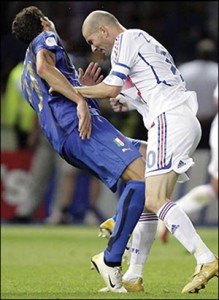More “Expressive Richness”
More “Expressive Richness”
Two writers tracked 57 Italian newspapers over 10 years and discovered 4,000 new words in common usage. Ranging from botulinato (botox) to Zidanata (Zidane-esque, after the French soccer celebrity who became infamous for his expulsion from the 2006 World Cup). Their book, Neologisms: New Words from the News, provides a snapshot of Italian contemporary life through its latest linguistic adoptions.
The authors, Sergio Rizzi and Gian Antonio Stella write that Italian has “fortunately” not been dominated by English phrases, but continues to retain its inherent “expressive richness.”

Not all languages are equally expansive. On one extreme, there is English, which rapidly absorbs foreign and spin-off words; on the other extreme is French, which forbids foreign words and is slow to add new ones. The Italian language falls in the middle, flexible enough to incorporate new phrases, but never allowing foreign neologisms to dominate it.
Some new Italian words:
Ammazzacosti: to lower the price, literally, “to kill the price”
Anticalcio: anti-soccer (akin to unpatriotic)
Barbonismo: homeless (from “barbarian”)
Berluschese: “Berlusconi-esque”
Coattume: of bad taste
Culturicidio: an insult to culture
Energivoro: a mega-consumer
Flessibilizzare: to make flexible
Milleurista: one with a monthly income of 1,000 Euros (i.e., low income)
Poltronismo: the condition of stuckness (literally, “part of the chair”)
Spammista: one who spams
